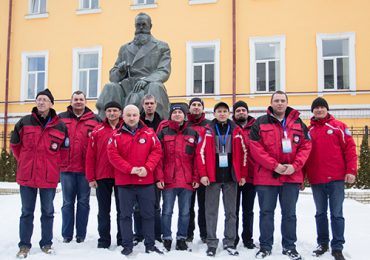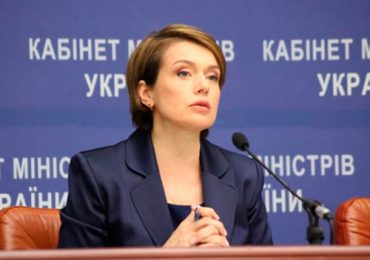Ukraine is interested in Australia’s experience in conducting Antarctic research, as Australia has a great history of studying Antarctica. This was emphasized by the Director of the Department for Scientific and Technological Development of the Ministry of Education and Science and the Representative of the Government of Ukraine to the Secretariat of the Antarctic Treaty, Dmitry Cheberkus, during a meeting with Director of the Antarctic Department of the Department of Environment and Energy of Australia Nick Gale.
At a meeting held in the Hobart city of Australia, the sides discussed problems in the field of Antarctic research and directions for future cooperation.
It is anticipated that Ukrainian scientists will participate in contests of scholarly projects funded by the Australian side. In addition, there will be an exchange of experience on Antarctic expeditions and effective management of Antarctic stations.
“We will be grateful for the information in the field of scientific research and improvement of life in the conditions of Antarctica”, – said Dmitry Cheberkus.
He noted that Antarctic research is one of the most important priorities of the Ukrainian Government. Throughout the year, Ukrainian scientists work at the Academician Vernadsky station, which Ukraine received in 1996 from the British Antarctic Society.
Scientists conduct research in the areas of biology, geology, geophysics, hydrometeorology, medicine, oceanography, etc. In particular, they study the ozone hole, climate change, open new species of biological objects, and observe animal populations.
“The location of the station” Academician Vernadsky “allows you to study complex environmental and biological processes. For example, after discovering the effect of the ozone hole near the station, it has become one of the ten most important reference ozone stations in Antarctica. Today, Ukrainian scientists make unique observations of the dynamics of the hole change – no other station has this capability. In addition, the scientific equipment of the station allows monitoring and early warning of natural disasters, such as earthquakes and tsunamis, “- said Dmitry Cheberkus.
Every day the station “Academician Vernadsky” transmits to the international data centers a large amount of primary information, which is included in the international bases and on the basis of which the monitoring of the status of Antarctica is carried out.
For reference: Ukraine joined the Antarctic Treaty of 1992. Participation in the Agreement gives our state the right to conduct activities in Antarctica (in particular, to create scientific stations and to deploy scientific expeditions) and to appoint authorized representatives to the Antarctic Treaty Consultative Meetings. Meetings are held each year for mutual consultations on topical issues of research and development of Antarctica, as well as for the purpose of developing recommendations to their governments on measures that promote the proper implementation of the principles of the Treaty.
Since 2004, Ukraine has received the status of an Antarctic Treaty Consultative Party (except for Ukraine, only 28 countries have such status). It gives our state the right to take a decisive vote in making any decisions on all issues related to activities in Antarctica.
By the decree of the Cabinet of Ministers, the Ministry of Education and Science of Ukraine is designated as the chief responsible for cooperation with the Secretariat of the Antarctic Treaty, an international organization which, together with the host party, is responsible for the preparation and conduct of the Antarctic Treaty Consultative Meetings.
Ukraine’s membership in the Antarctic Treaty Secretariat provides guarantees for the full participation of Ukraine in any form of possible future development of Antarctic subsoil, from the development of a mechanism for regulating such activities to its immediate implementation.




